Through Their Eyes: COVID-19 Chronicles with Violet Kadenyi Nabwera
This post is part of a new series by The Water Project meant to highlight the perspectives and experiences of the people we serve and how the COVID-19 pandemic is impacting them. We invite you to read more of their stories here.
Violet Kadenyi Nabwera sees a lot of changes happening in her home due to the pandemic. She is also seeing a lot of her family – the most time they’ve ever spent together under 1 roof, in fact – because of the various iterations of lockdowns and restrictions in their area. But she’ll get to that.
At 45-years-old, Violet is a farmer, mother, and missionary living in Ibinzo, Kenya. Together with her family, Violet depends on Lucia Spring for all of their daily water needs whenever they are home – which, lately, is all of the time. Despite the challenges and worries brought on by COVID-19, Violet remains steadfast in her positive attitude and is determined to find the good in every situation they face.
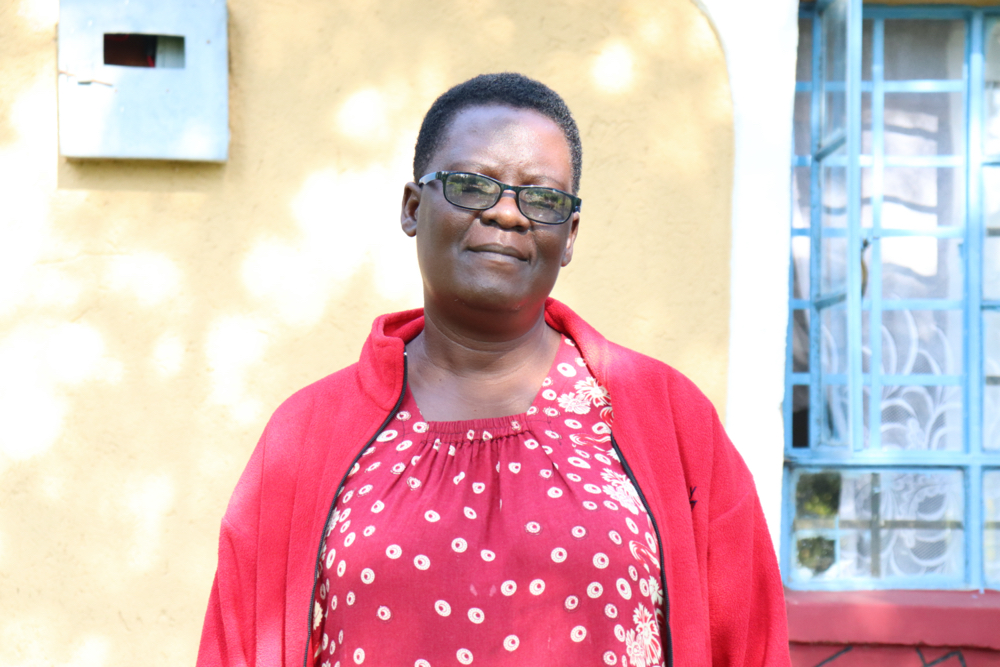
Violet Kadenyi Nabwera
Our team recently visited Ibinzo to conduct a COVID-19 prevention training (read more about it below!) and monitor their water point. Shortly after, we returned to check in on the community, offer a COVID-19 refresher training, and ask how the pandemic is affecting their lives.
It was during this most recent visit that Violet shared her story of how the coronavirus is impacting her life.
Training Manager Jacklyne Chelagat met Violet outside her home to conduct the interview. Both Jacklyne and Violet observed physical distancing and other precautions throughout the visit to ensure their health and safety. The following is Violet’s story, in her own words.
Violet tells how her community has changed since the protection of Lucia Spring, and how they are using its clean water to get through the pandemic.
“The installation of Lucia Spring brought with it a lot of benefits to our community. Members of our community no longer contract water-related diseases. Sanitation and hygiene have been improved and the spring no longer dries up since the water is well directed to 1 point for drawing, making it accessible to everyone.
“The outbreak of COVID-19 has caused changes in all sectors and our spring is not an exception. We agreed as community members to fetch water in turns, some to fetch in the morning, others in the afternoon and in the evening. While fetching water, everyone is supposed to wear a face mask, observe social distancing, and take the shortest time possible at the spring.
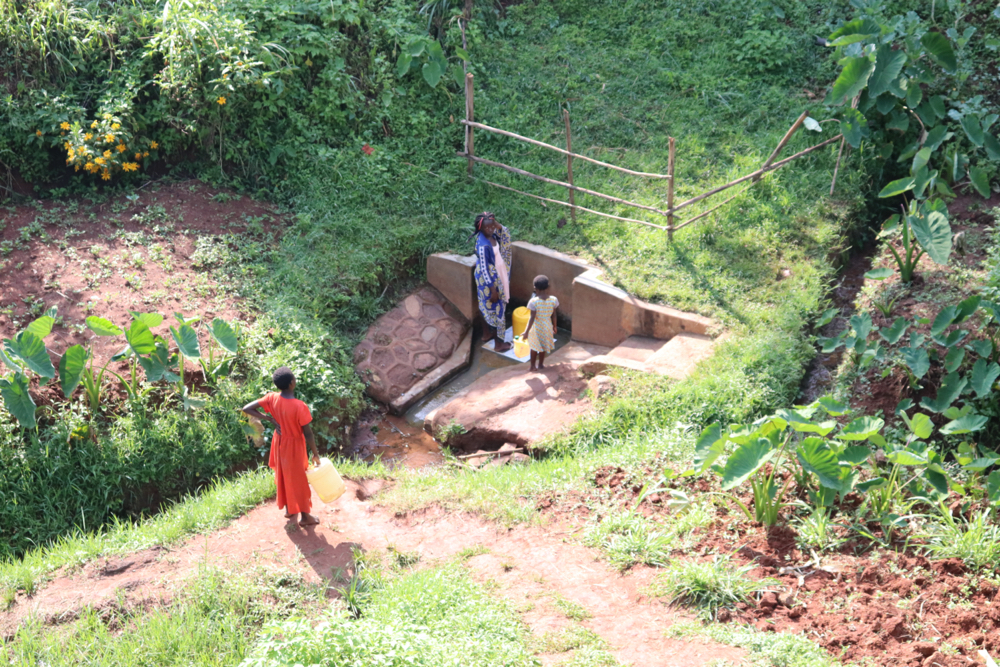
We spotted girls from different households observing physical distancing at the spring.
“One of the guidelines issued by the government is frequent handwashing and maintaining high levels of hygiene. To achieve this, we have been constantly getting water from the spring. We use water from the spring to wash our hands, clean surfaces in our homes, and to clean reusable face masks.
“The most important steps the community members are observing every day include: washing hands frequently, wearing masks, and to some extent keeping social distance. We no longer hold gatherings for [just any] reason.
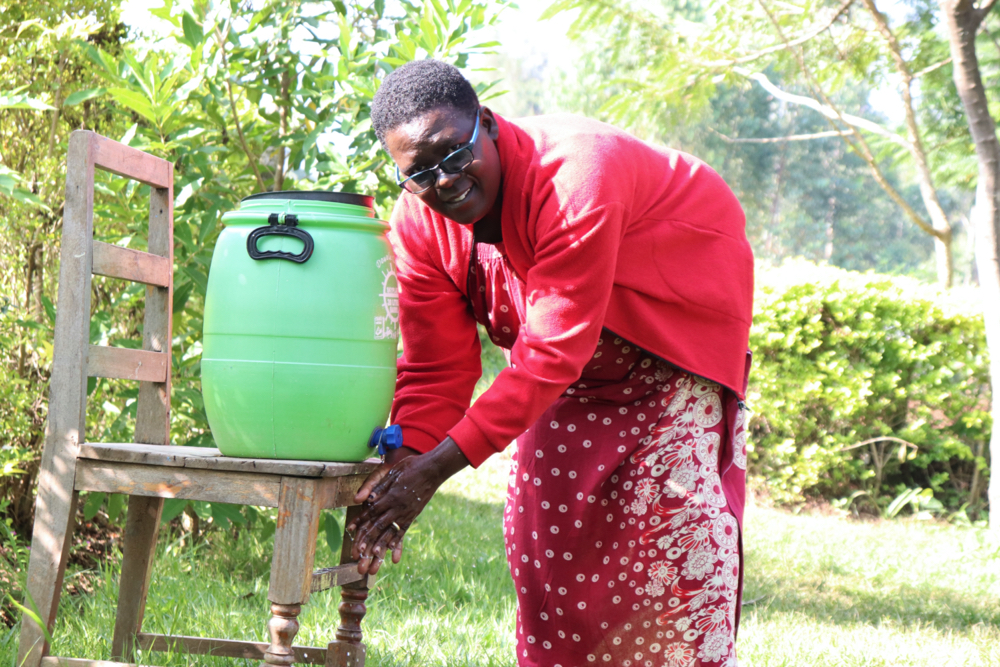
Violet washes her hands with soap and clean water from Lucia Spring using the handwashing station she set up outside her home.
“My husband and I are missionaries who move from one place to the other spreading gospel. Due to the COVID-19 outbreak, restrictions were placed to limit movements and this made it difficult for us to fulfill our mission and passion.
“On the other hand, my children are at home as a result of school closures; this has interfered with their academic programs, making them look disoriented. However, the pandemic has increased the parent-child bonding and it has created a conducive environment for parent-child relations. As a family, we have spent so much time together and we have learned a lot from one another. As a matter of fact, this is the longest time we have stayed together as a family.
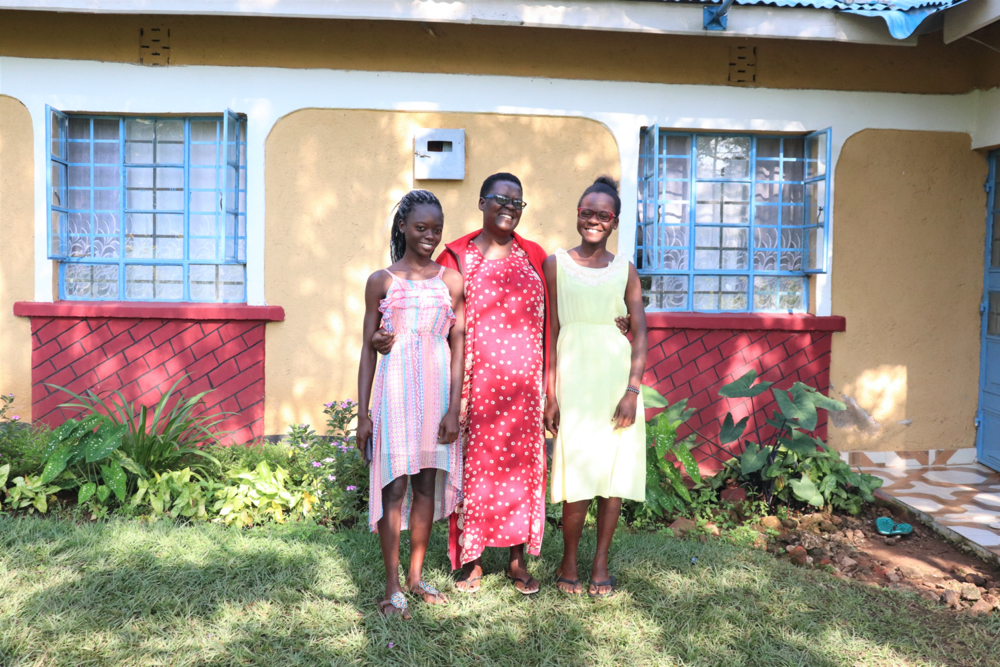
Violet with her 2 daughters at home.
“[The pandemic] has highly promoted boredom as we spend most of the time indoors. We no longer go visiting friends and relatives. Loss of income is also the greatest challenge as we use to get support anytime we traveled to spread the gospel. Today, everyone treats the other as a suspect and potential carriers of the virus.
“The restriction I was most excited to see uplifted is the ability to allow congregants to attend churches and places of worship. It was really frustrating when on Sundays, we could all stay at home and only attend services via television, radio, or social media. But considering the fact that infection cases are on the increase, I am currently comfortable with the restrictions placed because they are for our good and safety.”
When asked where she receives information about COVID-19, Violet listed the radio, television, and our team’s sensitization training.
What has been the most valuable part of the COVID-19 sensitization training you received from our team?
“The acquisition of knowledge about making masks locally. This helped the needy in the community who could not afford to purchase masks to be able to get them.”
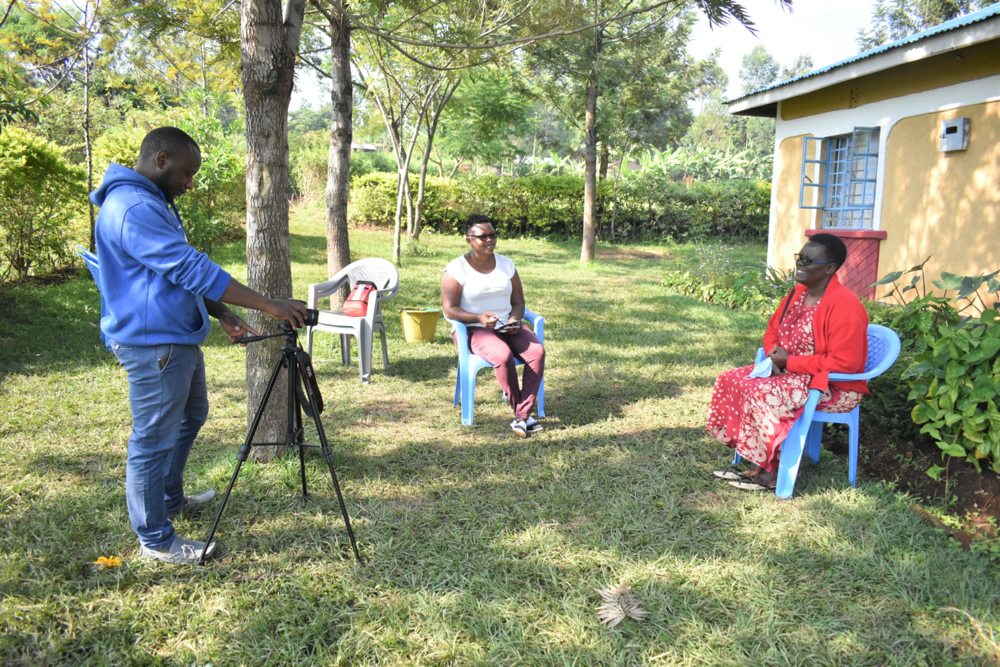
Trainings Manager Jacklyne Chelagat leads the interview with Violet and camera operator Allan Amadaro.
Home More Like This
Tweet